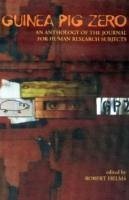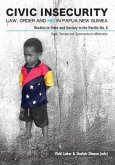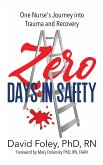From first person accounts of pharmaceutical studies gone bad to intricate medical histories, Guinea Pig Zero provides a fascinating look at the people who sell their bodies to science. While the book provides advice to present-day research subjects (by rating research clinics), the book also provides context by investigating the history and ethics behind this important, but little-known medical industry.
The hidden history of human experimentation—told by the guinea pigs themselves. Guinea Pig Zero presents the first anthology drawn from the pioneering underground zine of the same name, which began documenting the hidden world of human medical experimentation in 1996. Editor Robert Helms, a veteran "lab rat" himself writing under the pseudonym Guinea Pig Zero, brings together dozens of essays and firsthand accounts from the zine's pages that reveal this dark corner of science from the test subjects' own perspective. Through gripping personal narratives—from a volunteer who lost his mind in a sleep deprivation study to Gulf War soldiers unknowingly exposed to experimental toxins—this eye-opening anthology reveals what it's really like to trade your body for rent money in the name of science. Including historical accounts of subject resistance like the forgotten 1935 test subject strike, these underground dispatches from the zine expose the disturbing reality behind clinical trial consent forms and the dark underbelly of medical research. A vital resource for bioethicists, medical historians, and general readers alike, this essential anthology will forever change how you think about scientific progress and the human cost of medical advancement.
The hidden history of human experimentation—told by the guinea pigs themselves. Guinea Pig Zero presents the first anthology drawn from the pioneering underground zine of the same name, which began documenting the hidden world of human medical experimentation in 1996. Editor Robert Helms, a veteran "lab rat" himself writing under the pseudonym Guinea Pig Zero, brings together dozens of essays and firsthand accounts from the zine's pages that reveal this dark corner of science from the test subjects' own perspective. Through gripping personal narratives—from a volunteer who lost his mind in a sleep deprivation study to Gulf War soldiers unknowingly exposed to experimental toxins—this eye-opening anthology reveals what it's really like to trade your body for rent money in the name of science. Including historical accounts of subject resistance like the forgotten 1935 test subject strike, these underground dispatches from the zine expose the disturbing reality behind clinical trial consent forms and the dark underbelly of medical research. A vital resource for bioethicists, medical historians, and general readers alike, this essential anthology will forever change how you think about scientific progress and the human cost of medical advancement.








